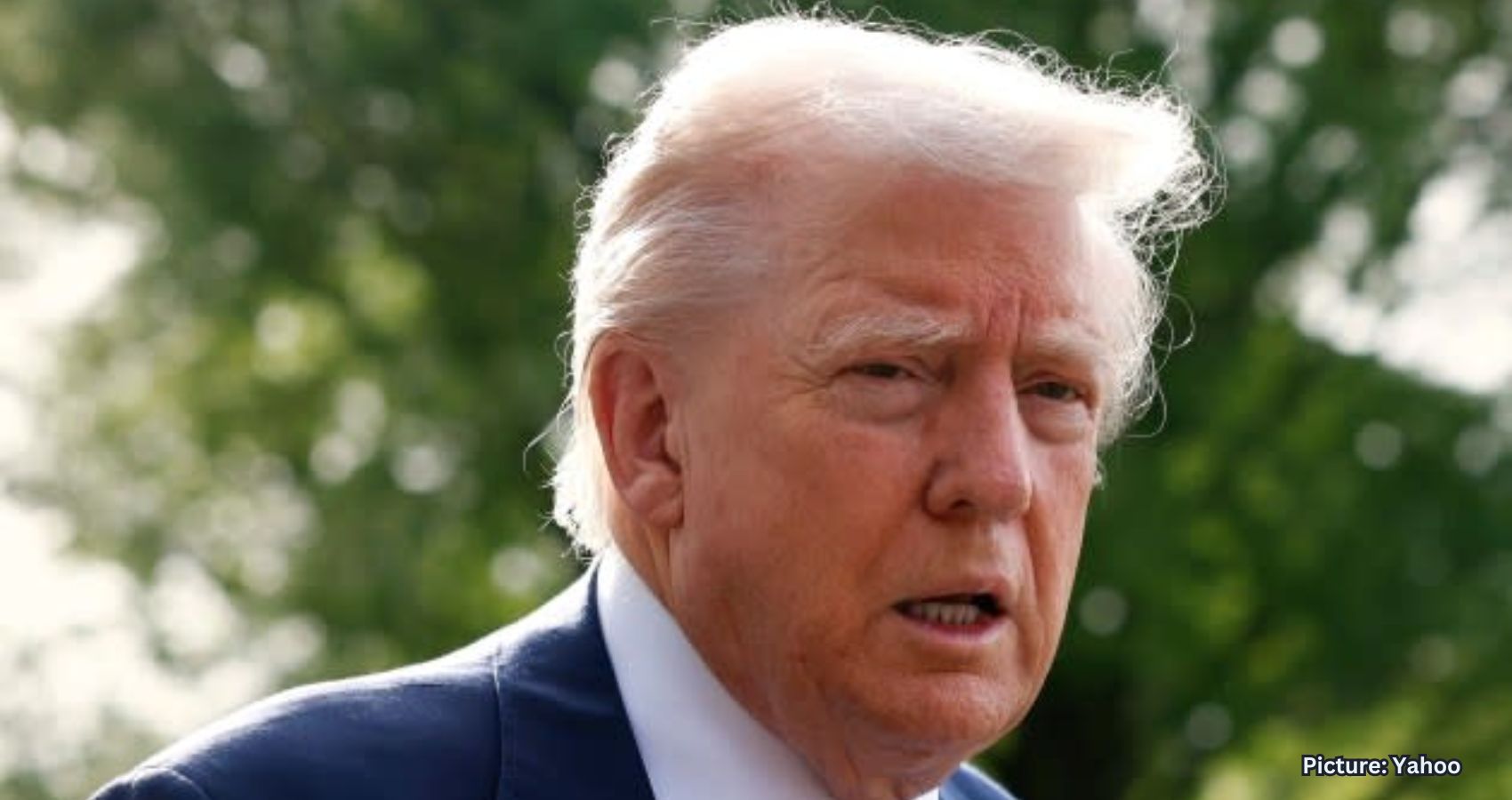President Donald Trump announced on Sunday that he plans to order U.S. officials to begin implementing a 100% tariff on all movies made outside of the United States. The move would mark a dramatic escalation in his trade policy approach, shifting from a focus on manufacturing industries like steel, aluminum, and automobiles to intellectual property and entertainment.
Until now, Trump’s trade initiatives have largely centered on traditional industrial sectors, targeting the import of physical goods such as metals and cars. However, targeting the film industry introduces a host of complex challenges. In the modern global economy, movie production often involves collaboration between multiple countries, making it difficult to determine how and where such a tariff would apply.
In a post on his social media platform, Truth Social, Trump wrote, “The Movie Industry in America is DYING a very fast death. Other Countries are offering all sorts of incentives to draw our filmmakers and studios away from the United States.” He argued that these foreign incentives are not just economic strategies but deliberate attempts to undermine the U.S. film industry and national interests.
“This is a concerted effort by other Nations and, therefore, a National Security threat. It is, in addition to everything else, messaging and propaganda!” Trump continued. His remarks suggest that he sees foreign-produced films not only as a threat to American jobs but also as vehicles for disseminating foreign narratives that could influence public opinion or weaken national unity.
To address what he perceives as a serious threat, Trump said he would instruct the Secretary of Commerce and the U.S. Trade Representative to begin the process of implementing tariffs on “any and all Movies coming into our Country that are produced in Foreign Lands.” While Trump has long used tariffs as a tool to promote American manufacturing, this proposed measure represents an expansion of his economic nationalism into the cultural and creative sectors.
Despite the bold declaration, the logistics of enforcing such a policy remain unclear. Trump did not specify how the tariffs would be assessed, whether by production location, distributor, or point of entry. It’s also unknown whether the proposed tariffs would be limited to movies released in theaters or if they would extend to content available on streaming platforms. Additionally, there is no clarity on how regulators would differentiate between a movie and a television show when deciding what should be taxed.
At this stage, there has been no official confirmation or explanation from the White House or the Department of Commerce. When contacted for comment by Axios, representatives from both offices did not respond, leaving many questions unanswered about the feasibility and scope of the proposed policy.
Zooming out, the U.S. film industry has increasingly turned to international locations for filming over the past decade. Rising production costs in the U.S. have made other countries with government subsidies and tax breaks more attractive for filmmakers. Hollywood blockbusters, which often require enormous budgets, are frequently shot in places like Canada, the U.K., or Eastern Europe where producers can stretch their dollars further.
This trend has had a noticeable impact on domestic employment in the entertainment industry. The New York Times reported last month that the U.S. film and television sector has lost more than 18,000 jobs over the past three years. That decline has only added to concerns about the industry’s competitiveness and long-term health, particularly as streaming platforms disrupt traditional revenue models.
Trump’s proposed tariff is likely aimed at reversing this trend by incentivizing studios to bring production back to American soil. However, critics are likely to question whether a 100% tariff would actually help or if it could backfire by straining international relationships and increasing costs for American distributors, theaters, and ultimately consumers.
Furthermore, the film industry is deeply globalized, with many major productions relying on international talent, locations, and financing. Applying a broad tariff to all foreign-made content could disrupt long-standing collaborations and may invite retaliatory measures from other nations.
The proposal also raises questions about censorship and the regulation of media. If foreign films are labeled as propaganda or national security threats, that could set a precedent for restricting creative content based on political considerations. Critics may argue that such a policy risks undermining the values of free expression and cultural exchange.
While Trump’s statement frames the tariff as a matter of national security, no specific foreign films or countries were cited as examples of the threat. It’s also unclear how the administration would evaluate whether a film was produced abroad. Would a movie partially shot overseas but primarily developed in the U.S. still qualify as foreign? What about co-productions between American and international studios?
As things stand, the details of Trump’s proposed film tariff remain largely theoretical. However, the announcement signals a potential shift in trade policy that could have far-reaching implications for Hollywood, global entertainment, and U.S. relations with film-producing nations. Until further clarification emerges from the federal agencies tasked with trade enforcement, industry leaders will likely remain in a state of uncertainty, unsure of how seriously to take the proposal or how to prepare for its potential implementation.
Trump’s suggestion to equate international film production with a national security issue also adds a new layer of complexity to what has traditionally been seen as an artistic and economic endeavor. It introduces a political dimension to filmmaking that may reverberate far beyond the entertainment world.
In conclusion, while Trump’s declaration about imposing a 100% tariff on foreign films is framed as a patriotic defense of American industry, its execution faces numerous logistical, legal, and diplomatic hurdles. If implemented, such a policy could alter the landscape of global film production and provoke significant debate about the role of government in regulating cultural products.

